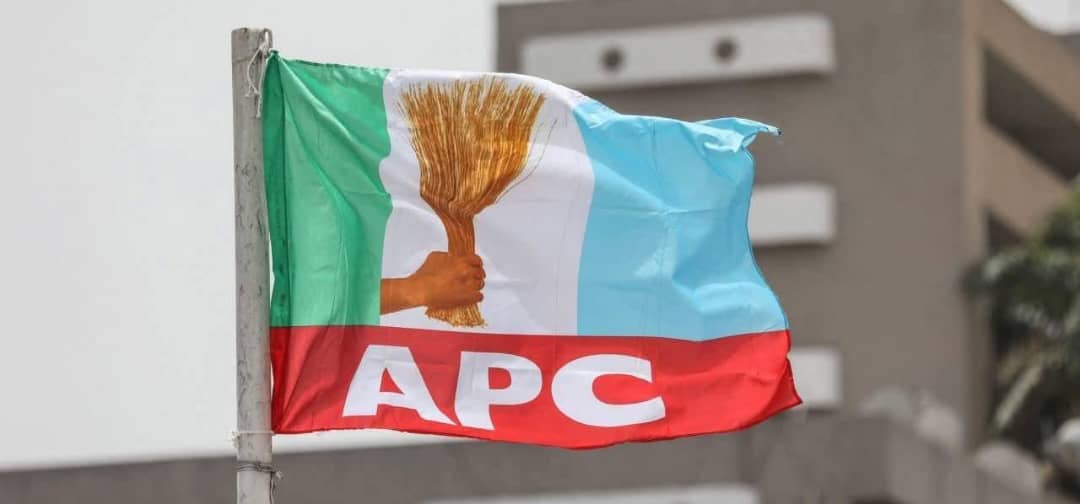

News
$2bn Broadband Expansion Project to Drive GDP Growth, Digital Inclusion – Tijani
Nigeria’s $2 billion broadband initiative is set to accelerate GDP growth, enhance digital inclusion, and position the country as Africa’s next global technology hub, according to Minister of Communications, Innovation and Digital Economy, Dr. Bosun Tijani, at the 31st Nigerian Economic Summit in Abuja.
ABUJA, October 6, 2025
The Minister of Communications, Innovation and Digital Economy, Dr. Bosun Tijani, has said that Nigeria’s new $2 billion broadband expansion project will significantly enhance Gross Domestic Product (GDP) growth and promote digital inclusion nationwide. He made this known at the plenary session on “Smart Growth, Digital Leap,” hosted by IHS Towers during the 31st Nigerian Economic Summit (NES #31) in Abuja.
Tijani described the broadband plan as an ambitious national investment that will connect every part of Nigeria to fast internet and unlock digital opportunities. He said the project’s goal is to position the country as Africa’s next global technology exporter while boosting productivity and innovation-driven growth.
The minister explained that the project is structured on a hybrid financing model — with 49 per cent government participation and 51 per cent from the private sector – and aims to achieve universal broadband coverage across all 774 local government areas within three years.
He said the broadband rollout, supported by development partners such as the World Bank, International Finance Corporation (IFC), and Africa Finance Corporation (AFC), would serve as the foundation for Nigeria’s digital economy. According to him, broadband connectivity is no longer a luxury but an essential driver of national development and competitiveness.
Tijani noted that while the Information and Communications Technology (ICT) sector already contributes about 15 per cent to Nigeria’s GDP, broadband penetration remains around 50 per cent, leaving millions of citizens unconnected. He added that World Bank data shows a 10 per cent increase in broadband access can lift GDP by as much as two per cent annually.
He said part of the plan is to classify broadband as national critical infrastructure, which will encourage private investment, streamline regulatory processes, and reduce telecoms operational costs. The minister also cited IHS Towers’ innovation hub project, regarded as West Africa’s largest, as a model for successful public-private collaboration.
According to him, the IHS innovation hub will train thousands of young Nigerians and provide incubation spaces, mentorship, and access to international investors. He said the hub will mirror successful global models in countries such as India and Brazil, helping to position Nigeria as a regional technology leader.
Tijani added that the broadband expansion would impact multiple sectors beyond technology. He referenced economists’ projections that improving rural connectivity could add up to $25 billion annually to agricultural output, driving export diversification and food security.
He said the federal government’s 3 Million Technical Talent (3MTT) Programme complements the broadband project by developing skilled workers in Artificial Intelligence (AI), cloud computing, cybersecurity, and data analytics. He noted that about four per cent of the training initiative is devoted exclusively to AI skills.
Tijani praised President Bola Tinubu’s administration for implementing policies that prioritize broadband as critical national infrastructure. He said the reforms, which include regulatory clarity and tariff adjustments, are repositioning the sector to drive productivity and sustainable growth.
The Chief Executive Officer of IHS Nigeria, Mr. Mohamad Darwish, said Nigeria’s digital transformation over the past decade has been remarkable, with increased internet penetration driving innovation in e-commerce, online education, and entrepreneurship. He observed that digital platforms now enable small businesses to reach broader audiences and scale faster.
Darwish stated that initiatives such as 3MTT and regional innovation hubs were upskilling young Nigerians and creating a robust tech ecosystem that has made the country Africa’s most vibrant startup hub. However, he said challenges such as poor rural connectivity, unstable power supply, and uneven digital literacy remain major constraints.
He stressed that bridging the digital divide would require continuous investment in broadband infrastructure, partnerships between the public and private sectors, and community-based digital literacy programmes. He said coordinated efforts to expand access and skills will enhance productivity, foster inclusion, and position Nigeria for sustained economic growth. GMTNewsng
News
Security in Anambra: Police Deploy 70 New Constables to Boost Safety and Community Policing
Security in Anambra gets a major boost as the state police command deploys over 70 newly passed-out constables to strengthen manpower, community policing, and intelligence gathering across divisions.


Awka, October 8, 2025 – Security in Anambra State has received a significant boost following the deployment of over seventy newly passed-out constables to the state by the Nigeria Police Force.
The fresh officers, who graduated from the Police Training College, Oji River, Enugu State, were officially received on October 8, 2025, by the Anambra State Police Command as part of a nationwide initiative by the Inspector-General of Police (IGP), Kayode Adeolu Egbetokun. The deployment aims to enhance manpower capacity, improve grassroots security, and strengthen community policing frameworks.
According to the Commissioner of Police, CP Ikioye Orutugu, fwc, minps, PhD, the new constables would be strategically deployed across police divisions and formations in Anambra to ensure enhanced visibility policing, intelligence gathering, and rapid response to security situations.
He emphasized that the addition of these young officers would complement ongoing operational strategies to tackle crime and improve security in Anambra, particularly in rural and semi-urban communities.
“The presence of new constables in the force will boost our manpower and improve our operational response time. The goal is to ensure safety, peace, and law and order across Anambra State,” the Commissioner stated.

The police command has also reiterated its commitment to working closely with residents, community leaders, and security stakeholders to ensure effective community policing and continuous intelligence sharing. This approach, according to CP Orutugu, aligns with the IGP’s vision of proactive policing driven by professionalism, discipline, and community partnership.
SP Tochukwu Ikenga, the Police Public Relations Officer (PPRO) for Anambra State, in a statement made available to GMTNewsng, noted that the deployment reflects the Inspector-General’s proactive stance on security enhancement nationwide.
He added that the new officers, trained in modern policing methods including human rights protection, digital intelligence, and emergency response, would “serve as key enforcers of peace and stability” in the state.
The Anambra Police Command therefore calls on citizens to continue providing useful information that will aid law enforcement in combating crime and improving overall security in Anambra.
The arrival of these seventy new constables comes at a time when local and national authorities are intensifying efforts to reinforce internal security and tackle emerging threats such as cultism, kidnapping, and cybercrime.

Observers believe that the deployment will not only strengthen security in Anambra but also improve trust and collaboration between the police and local communities, which are crucial to achieving sustainable peace and public confidence.
For more stories on security and development efforts in Nigeria, visit our National Security section or learn more about community policing reforms in Nigeria. GMTNewsng
News
Uche Nnaji Resignation Tinubu Intolerance for Corruption Shows Renewed Hope in Ethical Governance
The Uche Nnaji resignation Tinubu intolerance for corruption development reflects President Tinubu’s strong stand against graft and a renewed commitment to ethical leadership and transparency in Nigeria.

ABUJA, October 8, 2025 – The Uche Nnaji resignation Tinubu intolerance for corruption event has been described by many political observers as a defining moment for Nigeria’s ethical and governance reform under President Bola Ahmed Tinubu.
Following the resignation of Uche Nnaji, former Minister of Innovation, Science and Technology, over allegations of certificate forgery, President Tinubu promptly accepted his resignation – a move many analysts see as proof of his administration’s intolerance for corruption and misconduct in public office.
Political stakeholders, including Chief Victor Ogba, a chieftain of the All Progressives Congress (APC), said the Uche Nnaji resignation Tinubu intolerance for corruption episode demonstrates the President’s moral discipline and determination to build an administration founded on integrity and public accountability.
According to Ogba, President Tinubu’s swift response sends a clear signal that his government prioritizes ethics above politics. “The Uche Nnaji resignation Tinubu intolerance for corruption incident reassures Nigerians that the President will not protect any appointee accused of wrongdoing,” he said.
He praised Uche Nnaji for his courage to step down voluntarily, describing it as a patriotic act that aligns with Tinubu’s Renewed Hope Agenda. Ogba added that the former minister’s decision has shown rare political maturity and moral responsibility uncommon in Nigeria’s political space.
“The former minister’s resignation strengthens public confidence in President Tinubu’s fight against corruption and his effort to reposition Nigeria’s governance structure,” Ogba emphasized.
The Uche Nnaji resignation Tinubu intolerance for corruption development also signals Nigeria’s growing alignment with international anti-corruption standards, such as the United Nations Convention Against Corruption (UNCAC), and domestic institutions like the Code of Conduct Bureau (CCB).
Analysts believe this step consolidates the President’s image as a reformist determined to make transparency and accountability the new norm in public service.
They argue that the decision demonstrates how Tinubu’s administration has moved from rhetoric to action, ensuring that no official, no matter their political connection, is above ethical scrutiny.
Beyond the political dimension, governance experts suggest that the Uche Nnaji resignation Tinubu intolerance for corruption incident could set a precedent that will influence future officeholders to act more responsibly.
“This marks a cultural shift in Nigerian politics – where the fear of public embarrassment may finally start to check corruption,” said Dr. Grace Nwodo, a public affairs analyst.
The development also resonates with President Tinubu’s consistent emphasis on performance, transparency, and accountability as drivers of Nigeria’s sustainable development goals. By allowing due process and moral standards to guide his cabinet, Tinubu strengthens democratic values and public trust in his leadership.
Observers say that if sustained, the Uche Nnaji resignation Tinubu intolerance for corruption model will inspire a new generation of leaders guided by ethics and civic responsibility rather than personal gain.
For related updates, read Tinubu’s cabinet performance review on GMTNewsng, where experts evaluate governance reforms and their national impact. GMTNewsng
News
Natasha Akpoti-Uduaghan Resumes Plenary After Senate Suspension
Senator Natasha Akpoti-Uduaghan resumes plenary after her six-month suspension, reaffirming her commitment to justice, transparency, and service to the people of Kogi Central Senatorial District.

Abuja, October 7, 2025 – Senator Natasha Akpoti-Uduaghan resumes plenary at the Nigerian Senate, marking her return to legislative duties after serving a six-month suspension. The Kogi Central lawmaker’s resumption comes amid renewed calls for accountability, inclusion, and reform within the National Assembly.
The Senator, who represents Kogi Central Senatorial District, walked into the red chamber on Tuesday just as Senate President Godswill Akpabio was delivering his welcome address to lawmakers. Her presence immediately drew attention from colleagues who greeted her warmly, signaling reconciliation and renewed camaraderie in the upper legislative chamber.
According to the News Agency of Nigeria (NAN), Natasha Akpoti-Uduaghan resumes plenary after being suspended in March 2025 for alleged misconduct during her protest against the reassignment of her Senate seat. The suspension, which sparked public debate over gender representation and fairness in parliamentary procedures, has now formally expired, allowing her to return to full legislative participation.
On arrival, Akpoti-Uduaghan exchanged pleasantries with fellow lawmakers including Sen. Abdul Ningi (PDP–Bauchi), Sen. Ali Ndume (APC–Borno), and Sen. Aminu Tambuwal (PDP–Sokoto). Her resumption was seen as a symbolic moment reflecting both personal resilience and the broader push for gender equality in Nigeria’s political landscape.
During a media chat after plenary, the senator reaffirmed her position, stating that she owed no apology for standing up for what she believed in. “My actions were in defense of legislative fairness and women’s dignity in governance,” she said. “The Senate must remain a house of justice and not fear.”
Political analysts say that Natasha Akpoti-Uduaghan’s resumption demonstrates her growing influence and her refusal to be silenced by political intimidation. They note that her return could inspire more female legislators to speak up on issues of equity, transparency, and national development.
Her return also reignites discussions on women’s representation in governance, particularly as she remains one of the most prominent female voices in Nigeria’s 10th Senate. She has been a strong advocate for gender-sensitive policies, youth empowerment, and infrastructure development across Kogi State and beyond.
Many of her constituents in Kogi Central have expressed excitement over her comeback. For them, Natasha Akpoti-Uduaghan’s resumption of plenary duties is not just a political event, but a victory for the people who rely on her bold advocacy for social justice and inclusivity.
Observers believe her reinstatement will further strengthen legislative oversight, especially as she resumes work on critical motions that promote accountability and anti-corruption measures. According to a recent report by Premium Times, Akpoti-Uduaghan has consistently supported bills aimed at improving education, healthcare, and industrial development in Nigeria.
Her comeback also aligns with the Senate’s broader efforts to maintain internal unity and uphold democratic discipline. The leadership under Senate President Akpabio has emphasized reconciliation and cooperation among lawmakers to ensure effective governance.
In March, the Senate had announced her suspension after she questioned the decision to relocate her seat – a move she described as unfair and gender-biased. Her subsequent protest led to the heated exchange that resulted in disciplinary action. However, her return now shows the Senate’s willingness to move forward and promote dialogue over division.
Natasha Akpoti-Uduaghan resumes plenary not merely as a legislator returning to work, but as a symbol of courage and persistence in Nigeria’s democratic journey. Her re-entry into the upper chamber underscores the resilience required to challenge systemic inequality and defend the rights of elected representatives.
For a deeper understanding of parliamentary ethics and discipline, visit the National Assembly of Nigeria, which provides official updates on plenary sessions and committee activities.
Meanwhile, GMTNewsng had earlier reported on Senate President Akpabio’s leadership reforms and ongoing efforts expected to enhance legislative transparency and efficiency across Nigeria’s Senate. GMTNewsng
-

 News4 years ago
News4 years agoEnugu Community: Bloodbath imminent as traditional ruler plans forceful take over of ancestral land
-

 Features4 years ago
Features4 years ago65 Hearty Cheers To Prof. Bart Nnaji, Aka Ji Oku, Nigeria’s Former Minister Of Power
-

 News4 years ago
News4 years ago2023: Support one of our sons to be governor of Enugu State -Nkanu East leaders plead with other areas
-

 Politics4 years ago
Politics4 years ago2023: Enugu State Governorship slot should go to Nkanu East ~Jim Nwobodo
-

 Opinion4 years ago
Opinion4 years agoBIAFRA, KANU AND NIGERIA
-

 News4 years ago
News4 years agoUgwuanyi an epitome of peace in Enugu State ~Owo Community
-

 News4 years ago
News4 years agoHow Interpol intercepted IPoB leader in Europe
-

 Politics4 years ago
Politics4 years agoEnugu: Nkanu East Leaders’ Forum Kicks Off Consultations For 2023 Governorship Slot








